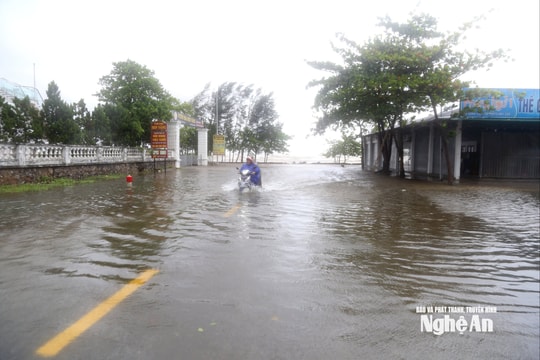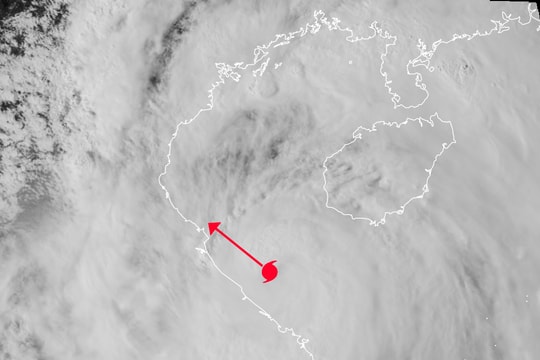Mr. Son: The effectiveness of bringing sugarcane to riverside alluvial land
(Baonghean.vn) - Taking advantage of the large alluvial land along the Lam River, many localities in Anh Son have replaced sugarcane with other short-term crops, bringing about much higher efficiency than other short-term crops.
High productivity
Mr. Le Thanh Ha, Dinh Hung village, Dinh Son commune, has brought sugarcane to the alluvial land along the coast.Lam Riverfor more than a year. Compared to corn and other short-term crops, according to Mr. Ha, sugarcane gives much higher productivity and income.
Mr. Ha boasted that in the first year his family planted high-yield sugarcane on alluvial land, it yielded 120 tons/ha, earning an income of 80 to 100 million VND/ha. Because in the first year, they had to deduct costs for seeds, fertilizers, and plowing, so they only made a profit of about 50 million VND/ha. However, according to Mr. Ha, in the second and third years, when they only had to spend on care and fertilizer on the area of sugarcane left behind, if the price of sugarcane remained stable at more than 1 million VND/ton as it is now, the family's income on 1 hectare of alluvial land would reach 80 to 100 million VND.
Mr. Ha said that compared to growing corn, growing sugarcane brings higher economic efficiency. Currently, many families have moved sugarcane to alluvial land, so it is much easier to bring in machinery for mass cultivation, reducing labor.
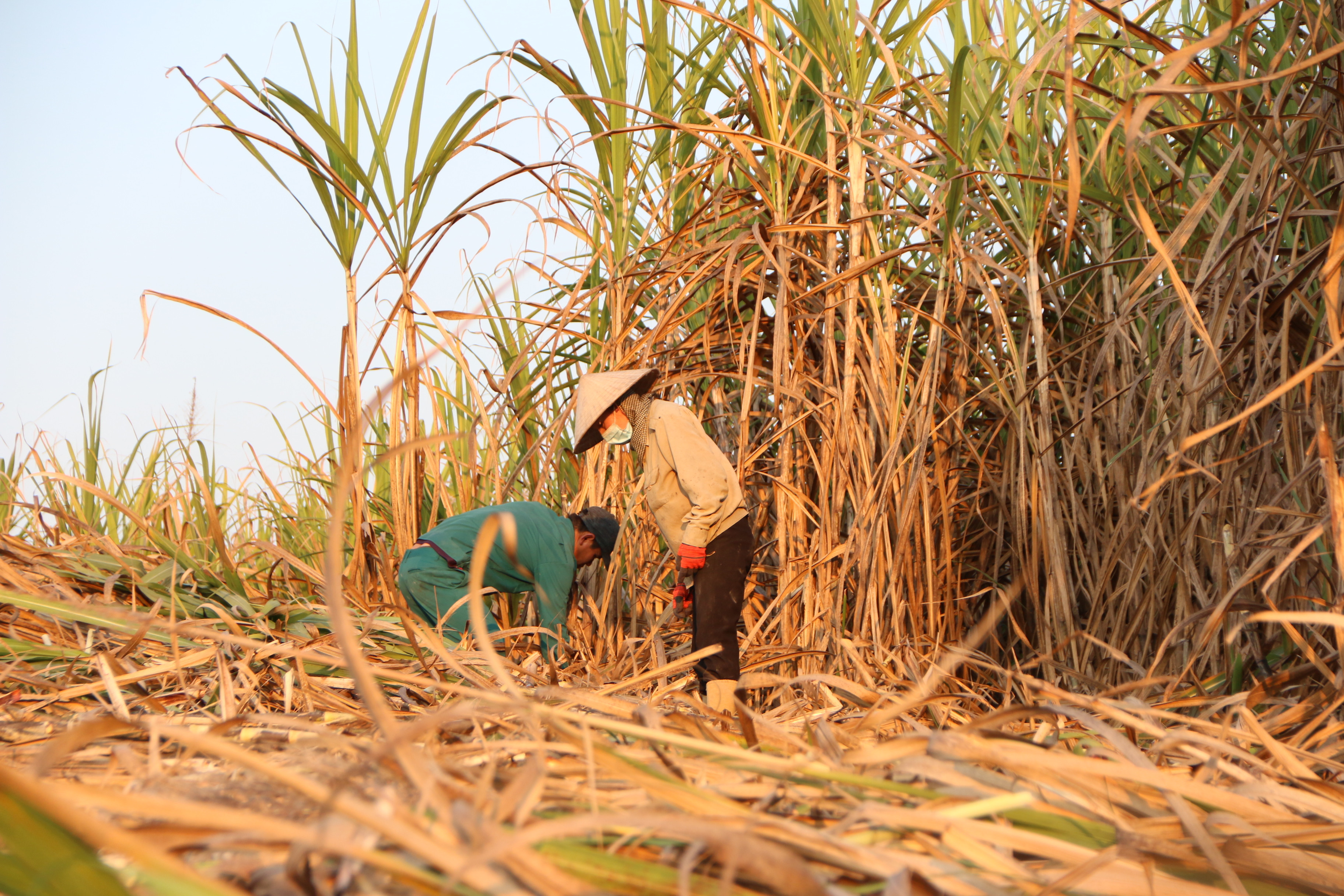 |
| With sugarcane prices as high as they are this year, sugarcane growers have made a profit. Photo: Tien Dong |
Mr. Phan Van Hoi - Chairman of Dinh Son Commune People's Committee said: The whole Dinh Son commune currently grows about 100 hectares of sugarcane, of which 48 hectares are on alluvial land. Currently, sugarcane grown on alluvial land is highly effective, so the locality has also considered converting some areas of alluvial land to sugarcane cultivation on the basis of a reasonable structure. Besides, some areas of short-term crops with high economic value such as corn, squash, etc. are still maintained.
Mr. Hoi also said that the sugar factory has implemented many policies to support sugarcane farmers such as supporting new planting areas with 2 million VND/ha and a policy of lending fertilizer with deferred payment, so the development of sugarcane on alluvial land is very favorable.
According to statistics, the current sugarcane acreage on alluvial land ofAnh Son districtis 450 hectares out of a total of 950 hectares of sugarcane in the district. Some localities with large sugarcane areas on alluvial land are Hoa Son 120 hectares, Hung Son 80 hectares, Duc Son 80 hectares, Vinh Son 50 hectares, Linh Son 42 hectares, Dinh Son 48 hectares, Tam Son 30 hectares...
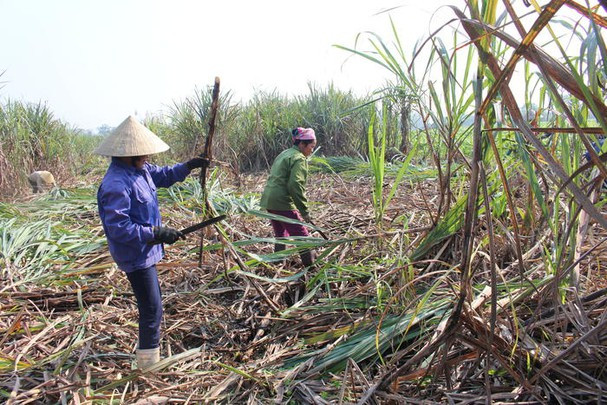 |
| People of Hoa Son commune harvest sugarcane. Photo: Thai Hien |
Mr. Nguyen Ngoc Giang - Deputy Head of the Department of Agriculture and Rural Development of Anh Son district said: The alluvial land along the Lam River is deposited with alluvium every year, so it is very good for crops, especially sugarcane. With the planting on fertile soil and the addition of high-quality varieties, in recent years the productivity and output of sugarcane in the area have increased compared to previous years. In the last pressing season, the average yield in the district reached 77 tons/ha, the output reached 73,150 tons. In the alluvial land alone, the yield reached about 100 tons/ha, the output reached 45,000 tons.
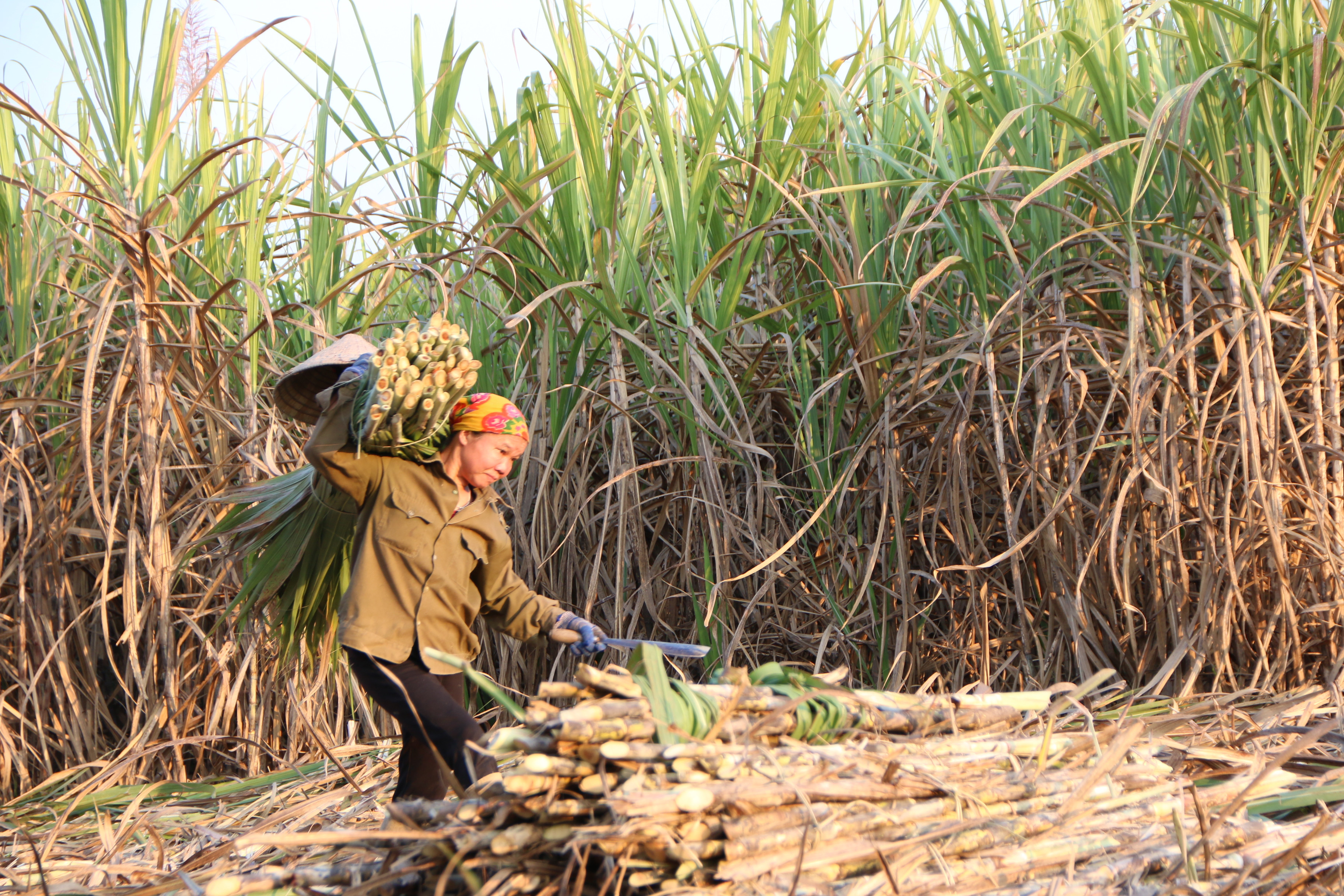 |
| Bringing sugarcane to the alluvial land has given higher productivity than sugarcane grown in the mountainous land. Photo: Tien Dong |
Many support policies
In addition to shifting cultivated land, in recent years many new sugarcane varieties with high productivity and resistance to pests and diseases have also been used by farmers in Anh Son area, such as LK92-11, KK3, QD 93-159... Mechanization has also been carried out on a large scale, so it is more effective than manual cultivation.
Mr. Giang also said that the district has also implemented many policies to support people in planting new sugarcane and bringing sugarcane to alluvial land, such as supporting 2 million VND/ha of new planting; supporting 50% of seeds and 50% of fertilizers for areas using new high-yield sugarcane varieties... With these support policies and the high price of sugarcane in recent years, it is hoped that the sugarcane area will increase.
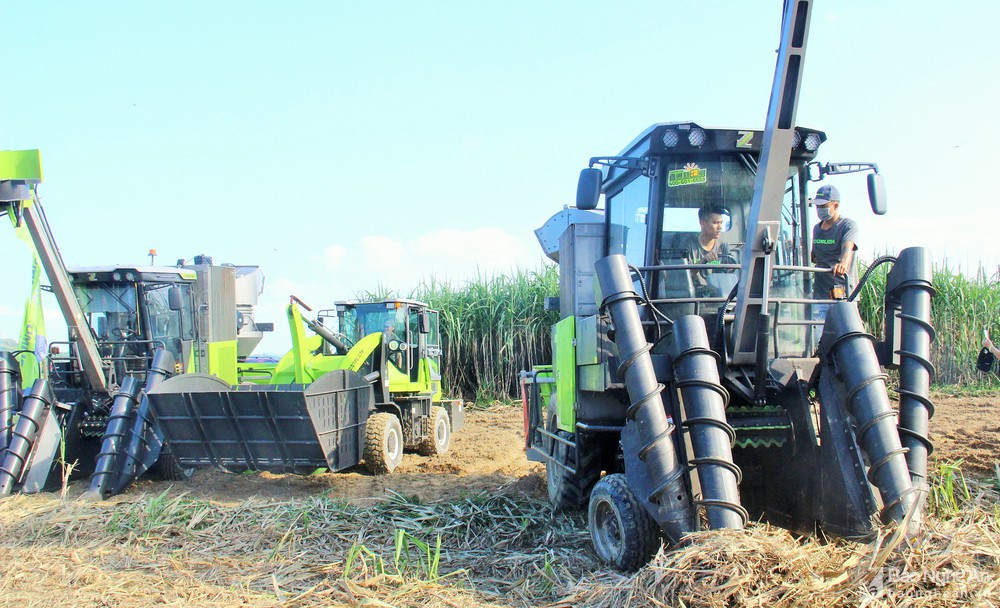 |
| Harvesting sugarcane by machine in Anh Son district. Photo: Hoang Vinh |
In fact, in recent years, the sugarcane area in Anh Son district has continuously decreased. In 2018, the total sugarcane area in the district was 1,647 hectares, in 2019 it decreased to 1,210 hectares and in 2020 it decreased to 850 hectares, and in 2022 it increased to 950 hectares. Not to mention some areas, people still cultivate in a traditional, small-scale way.
The fluctuating price of sugarcane, along with the high price of materials and fertilizers, also makes people feel discouraged, affecting the sugarcane cultivation area.
In addition, a problem that is currently being raised is that due to the large area of sugarcane, almost all of it is relying on natural irrigation, without a large enough irrigation system or investment, so when encountering dry weather, the sugarcane can easily die. In Anh Son district in 2015 and 2018, many areas of sugarcane were recorded to be drought-stricken and died, leading to low productivity.
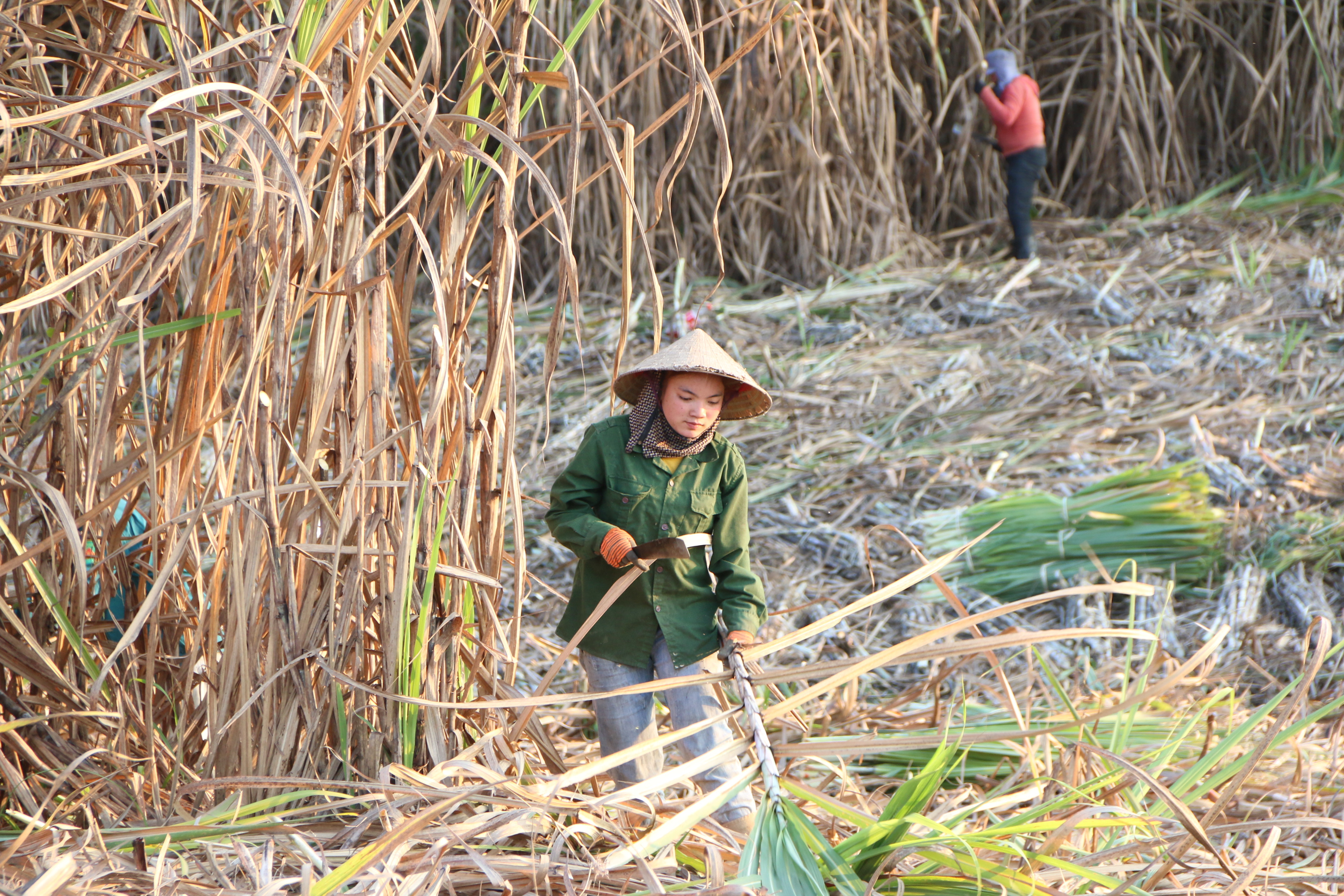 |
| Although sugarcane prices are high this year, material costs have also increased, affecting people's income. Photo: Tien Dong |
Faced with this situation, on March 25, 2021, the People's Committee of Anh Son district issued a Decision approving the Project on developing tea, sugarcane and cassava in the district for the period 2021-2025, with a vision to 2030. In which, the orientation is to develop raw sugarcane to supply two main factories, Song Lam Sugarcane Joint Stock Company (Anh Son) and Song Con Sugarcane Joint Stock Company (Tan Ky) according to raw material zoning. The scope is arranged in the whole region, focusing on Tho Son, Binh Son, Thanh Son communes and expanding communes with alluvial land along Lam River such as: Tam Son, Dinh Son, Hung Son, Tuong Son, Hoa Son, Hoi Son, Duc Son, Vinh Son and Thach Son, associated with introducing new varieties and mechanization into production to replace manual labor.
"The district's goal is to increase the area to 1,300-1,500 hectares by 2025, with a sugarcane output of 135,000 tons. By 2030, the area will be stabilized, focusing on developing productivity and the expected output will be 150,000 tons," Mr. Giang added.


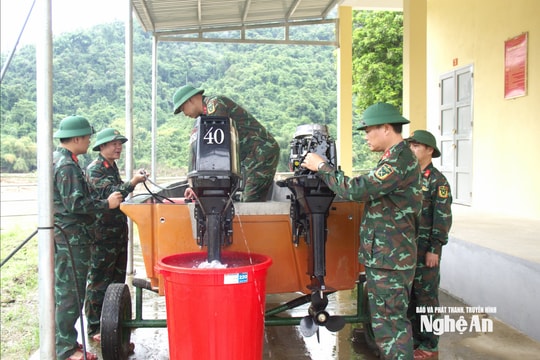

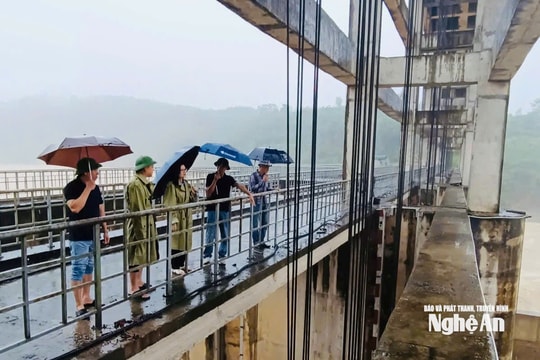
.jpg)
